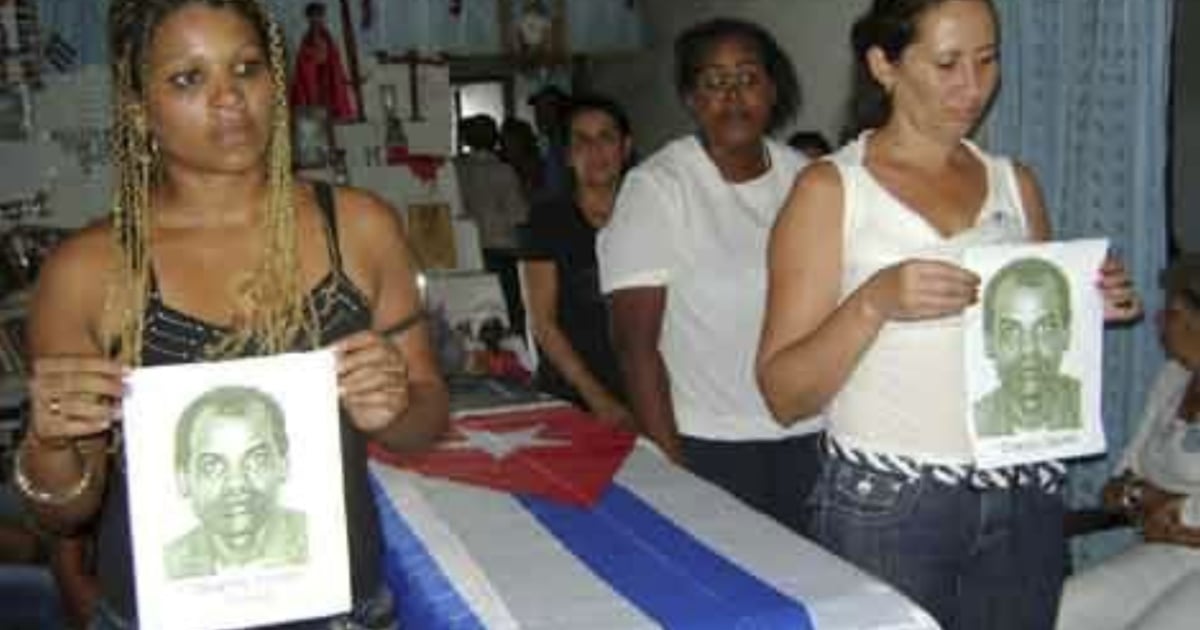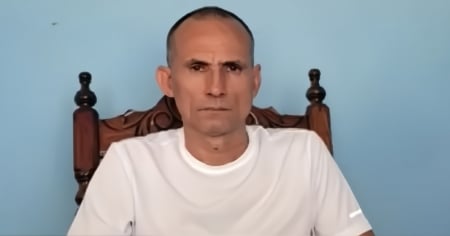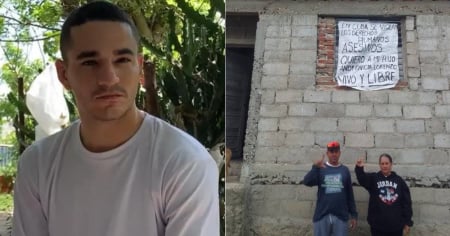
Related videos:
Activists, independent journalists, and Cuban opposition members paid tribute this Sunday to the political prisoner Orlando Zapata Tamayo, who passed away fifteen years ago after a prolonged hunger strike in protest against the violation of his human rights and the abuses he suffered during his incarceration.
The journalist Yoani Sánchez recounted what happened on the day of her death when she received the news that shook all of Cuba.
That day, Sánchez said, "one of the most inspiring processes of unity and cohesion of independent civil society took place."
The death of Zapata was a sacrifice in which he used his own body as a weapon of protest.
"Fifteen years have passed, and although the lack of freedoms continues to impact daily life on this Island, that February 23, 2010, is undoubtedly the anniversary marking the start of a new stage," Sánchez emphasized.
José Daniel Ferrer, leader of the Cuban Patriotic Union (UNPACU), recalled that he was in a solitary confinement cell in the provincial prison of Las Tunas when he learned that the peaceful dissenter and political prisoner Orlando Zapata Tamayo had died.
Against that crime, there was protest. "Many prisoners and several guards heard me. Zapata was a victim of beatings, physical and psychological torture, and he never gave up. Several common prisoners who were close to him spoke to me about his extraordinary courage."
Ferrer described Zapata as an example of courage and dignity. "I always keep him in mind. In the last 15 years, several political prisoners have died in the dark jails of the tyranny; they were left to die while on hunger strikes, they were killed by diseases that could have been prevented or treated, and they were beaten to death. Our martyrs can never be forgotten. February 23 is a day when we must all pay tribute to them."
For journalist Luz Escobar, the leader's death was a sacrifice and a cry for freedom "that the dictatorship has not been able to erase."
Orlando Zapata Tamayo was imprisoned in 2003 during the "Black Spring" in Cuba and sentenced in May 2004 to three years of imprisonment.
In prison, the regime added penalties for his political activism, resulting in a total of 36 years of sentencing for charges of disobedience, contempt, and protests in favor of human rights.
He passed away on February 23, 2010, after spending more than 80 days on a hunger strike in protest of the treatment received in prison.
A kick to the head from one of the guards at the prison in Holguín caused him an internal hematoma that required surgery. That was the final violent act that led him to initiate and maintain, until the very end, the hunger strike at the Kilo 8 prison in Camagüey that ultimately cost him his life.
After more than two months without food, and amid pressures from opponents, activists of Cuban civil society, and the international community, the Cuban regime decided to transfer him to the hospital at the Eastern Combined Prison in Havana, but he was ultimately taken to the Hermanos Amejeiras hospital, where he passed away.
Her death caused such an uproar that it sparked a campaign under the hashtag OZT: I accuse the Cuban government, calling for the release of all political prisoners in Cuba.
Frequently asked questions about Orlando Zapata Tamayo and repression in Cuba
Who was Orlando Zapata Tamayo and why is he remembered?
Orlando Zapata Tamayo was a Cuban political prisoner who died after a prolonged hunger strike in 2010, in protest against the human rights violations he experienced during his imprisonment. His death became a symbol of the fight for freedom in Cuba and sparked significant social mobilization and activism for human rights.
How did Orlando Zapata Tamayo die?
Orlando Zapata Tamayo died after more than 80 days on hunger strike, in protest against the inhumane treatment he received in prison. During his incarceration, he was subjected to beatings and torture, which led him to initiate a hunger strike that culminated in his death on February 23, 2010.
What was the impact of Zapata Tamayo's death on Cuban society?
The death of Orlando Zapata Tamayo had a profound impact on Cuban society and the international community, highlighting the lack of freedoms and human rights violations in Cuba. His case mobilized activists, journalists, and opponents, who continue to use his memory as a symbol of resistance and sacrifice in the fight for freedom on the island.
What actions have activists and opponents taken to keep the memory of Zapata Tamayo alive?
Activists and opponents have paid tribute to Orlando Zapata Tamayo on each anniversary of his death, using his story to highlight the repression and the lack of human rights in Cuba. They have organized commemorative events, shared his story on social media, and promoted campaigns such as "OZT: I accuse the Cuban government" to demand the release of political prisoners on the island.
Filed under:





